Collingwood coach Nathan Buckley reveals lessons learned from spending off-season with English rugby team
Jeremy Howe and Lynden Dunn remain very close to their former Melbourne teammates, but they are both Pies for life. Jamie Elliott couldn’t leave. Nathan Buckley opens up on why Collingwood always keeps its men.
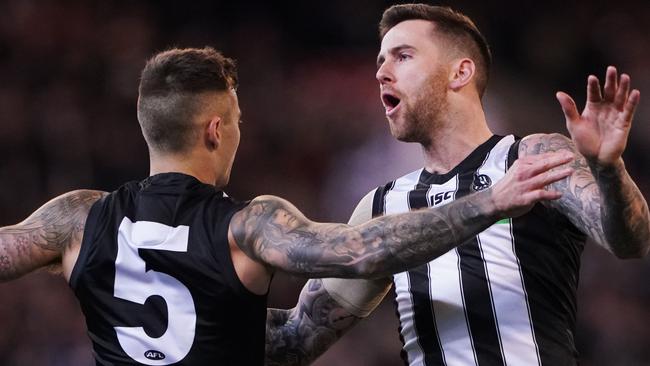
Collingwood
Don't miss out on the headlines from Collingwood. Followed categories will be added to My News.
Nathan Buckley is entering his 25th season as a Collingwood person, from his decorated 14-year playing career (1994-2007), two years as an assistant coach (2010-11) and eight as senior coach (2012-19).
Buckley, 47, has Collingwood poised for premiership success after it finished fourth and second in the past two seasons, years that have both ended in dramatic and heartbreaking finals losses — by four points in last year’s preliminary final and five points in the 2018 Grand Final.
This week he spoke with the Sunday Herald Sun in his role as an ambassador for Wolf Blass wines, a growing partnership that began last year.
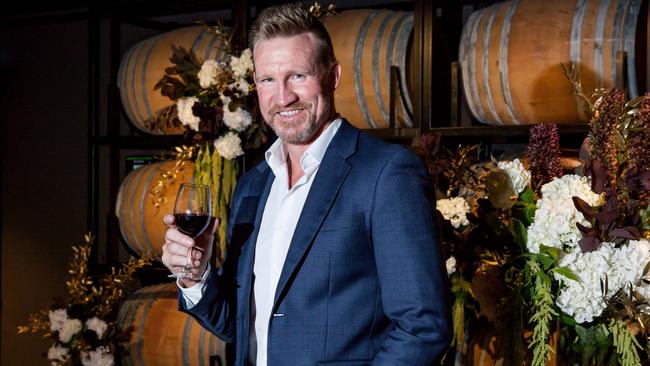
Jon Anderson: Congratulations. You have joined the ranks of fellow sporting greats such as Shane Warne and Dennis Lillee in having a wine named after you with the Wolf Blass product “Bucks Blend”.
Nathan Buckley: It was an interesting process. I had a conversation with their winemaker Steve Frost where he asked me what values I look for in a footballer. We ended up having a high-end philosophical chat and from that he used those values to put the wine together.
JA: What are those values?
NB: Strength which comes through the cabernet Shiraz’s spine, adaptability because it’s a blended wine which drinks differently as it matures. And being authentic which is where sport is heading and something we feel we have been able to do a lot better internally at Collingwood by looking after one another. They only made 60 bottles and are not actually selling it.
JA: Have you tasted it?
NB: I’m actually a “Chardy” (Chardonnay) drinker but people who understand the complexities of red wine say it goes all right. I like the way Wolf Blass runs their business, hence our partnership in the Decade of Grand Finals campaign where you buy a bottle of their wine then visit wolfblass.com for the chance to win a ticket for 10 years to either the AFL or NRL Grand Final.
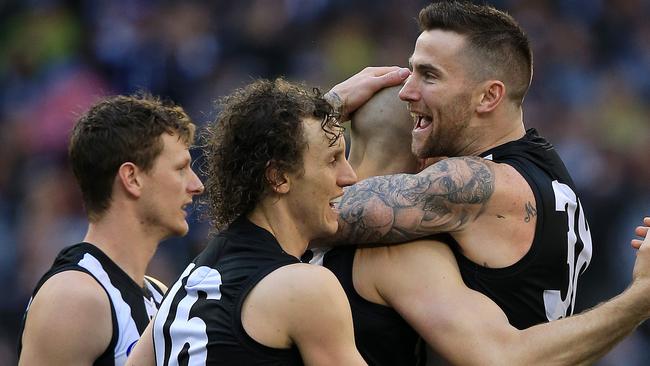
JA: To the Magpies. I read this week where Jamie Elliott said in the end he just couldn’t leave Collingwood despite outside interest last year. You don’t seem to lose players that you want to keep.
NB: We got Jeremy Howe and Lynden Dunn from Melbourne who remain really tight with their Melbourne mates, which tells you really strong bonds are through the locker room and if you get that right, and they support each other through the challenges of being a professional athlete, it becomes a team with a team. Believing in the organisation you are a part of, and the potential of success, we have those elements at the moment. We are doing a good job of supporting our people.
JA: Can Magpie supporters look forward to any positional changes in 2020?
NB: We’re definitely want to be more adaptable. Look at a bloke like Chris Mayne who has become invaluable to us because he plays on a wing, goes forward, goes back. He plugs so many holes and plays so many roles really well. We need our legitimate inside midfielders to have the capacity to go forward a little bit more. It has been developing over the last couple of years but we want to take it to another level. The flip side to that is guys who have traditionally been strike forwards we’d like to think they can take some responsibility in the midfield.
JA: Which raises the question of where does Jordan De Goey play?
NB: He has always drawn the ball. We see him short term as a big-bodied midfielder with great speed and agility, someone who can be ballistic inside. But the reality is he’s pretty valuable for us in the front half given his ability to win one on ones and find the goals out of the forward 50m. If we had two of him he would play both positions. He continues to work on his fitness and isn’t at the stage of his development where he could be a Taylor Adams, Scott Pendlebury or Adam Treloar, where he could spend whole games in the midfield, although I think the game is going away from that as we just discussed. He’ll be part of that adaptability where we get fresh legs through the middle more often.
JA: How do you see your list profile?
NB: We are one of the more experienced and older lists on average. Sometimes that can be misleading. Some of our younger players such as Brayden Maynard and Jack Crisp have been exposed to a lot more footy than they may have been but for injury to players such as Jamie Elliott and Darcy Moore. But we do have young blokes playing really important roles in the side. Through 2015, ’16 and ’17 there was damage caused by injury but we have been able to create more depth.
JA: Could we see Moore and Jeremy Howe sometimes go forward?
NB: There is a reason why players change positions and it’s because they have more impact there. We recruited Brodie Mihocek as a key back and due to injury we played him in the VFL as a forward for two weeks where he did well and he hasn’t looked back since. You will see Brodie behind the ball at times and you will see Darcy in front of the ball at times. But Darcy and Jeremy are elite key backs who are potential All-Australian contenders so they will play most of their footy in their preferred roles.
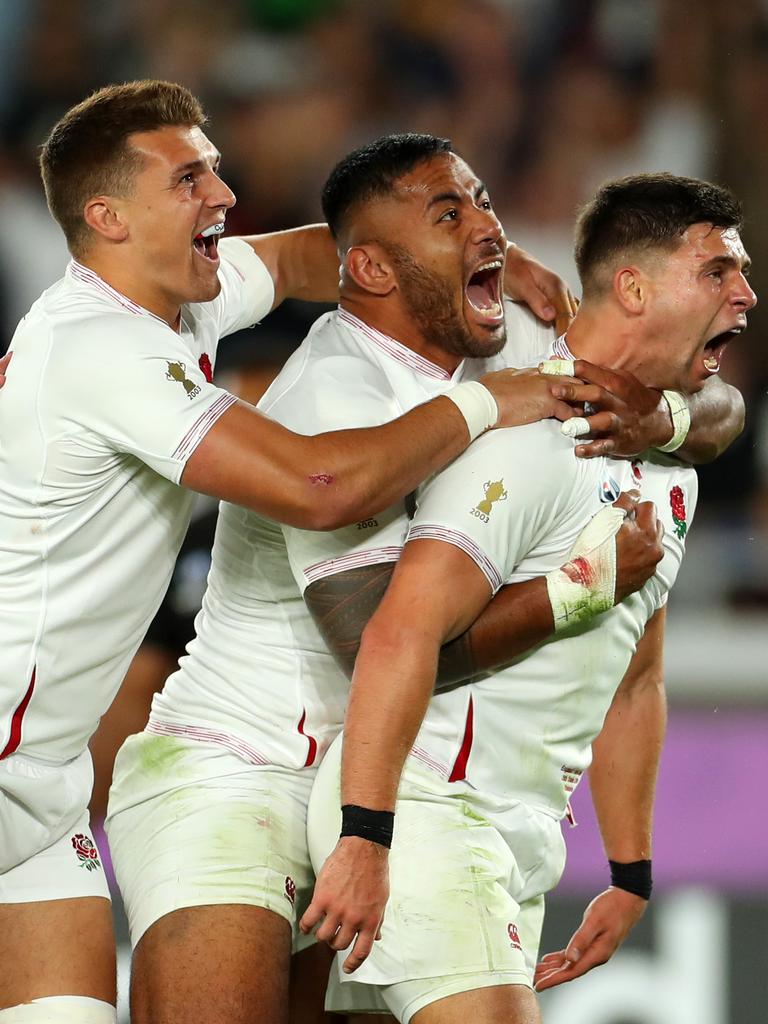
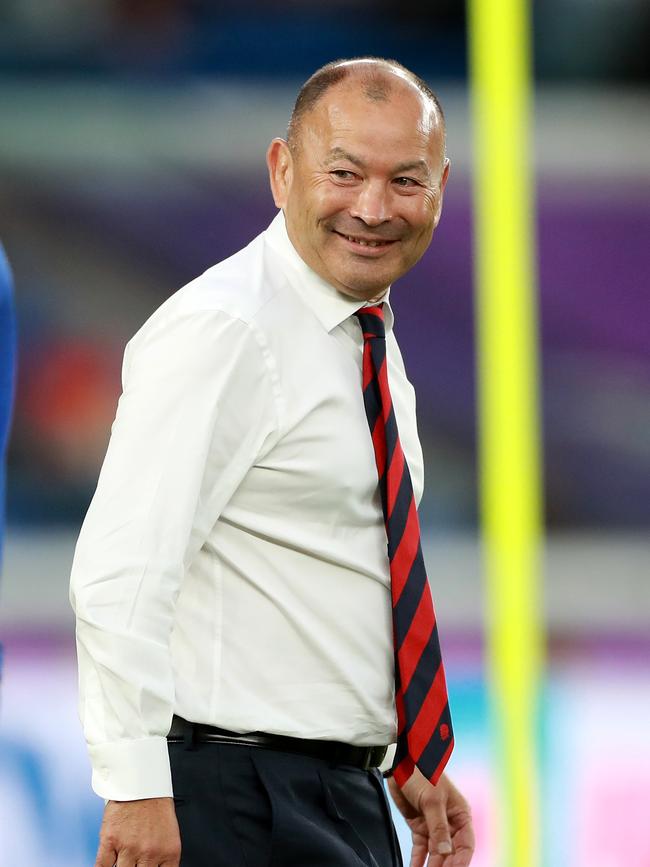
JA: This time last year we spoke after you had returned from an extended European holiday. Where did you go in your 2019 off-season?
NB: I spent some time with the English rugby team in Tokyo around their semi-final win over the All Blacks, which was fascinating. You take those experiences and add a little to what you are looking to project to your next evolution. But I do still feel most of growth comes from within, from a dynamic environment with so much to add. The real opportunities come from within.
JA: When you watch another sporting organisation, what are you hoping to discover?
NB: The thing I was most interested in was the actual environment they created, which was very heavily player-led although (coach) Eddie Jones as the main leader either allowed that or closed it down. Ultimately they didn’t get over the line but the way they galvanised as a group was impressive.
Originally published as Collingwood coach Nathan Buckley reveals lessons learned from spending off-season with English rugby team

